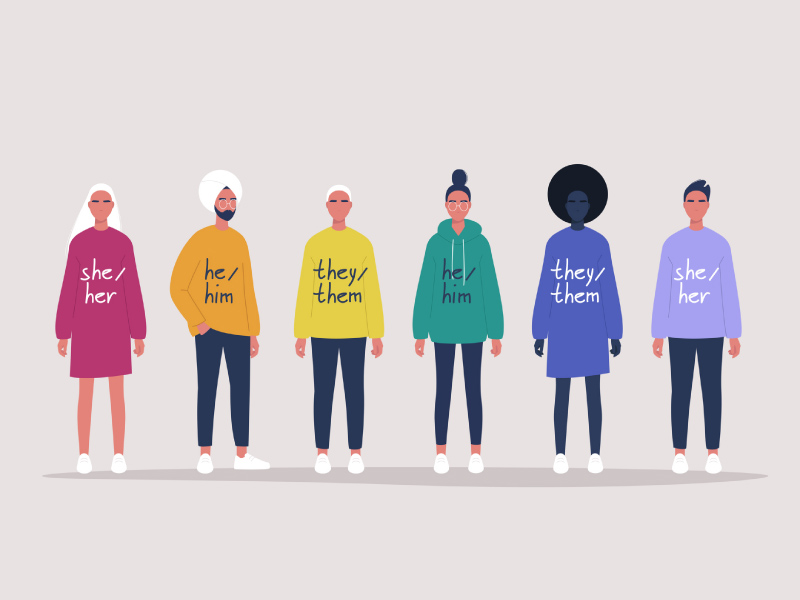Discrimination against transgender, gender diverse people adds to heart troubles
By American Heart Association News

Stress from discrimination may contribute to higher rates of heart disease among transgender and gender diverse people, according to a report from the American Heart Association.
The scientific statement said policy changes and more training are needed to recognize and reduce discrimination in clinics and other health care settings.
"Addressing these issues will require a focus on 'traditional' risk factors for heart attack and stroke, and a commitment to fight transphobia in order to decrease the additional stress experienced by this population," writing committee chair Dr. Carl Streed Jr. said in a news release. Streed is an assistant professor of medicine at Boston University School of Medicine and lead researcher at the Center for Transgender Medicine and Surgery at Boston Medical Center.
Published Thursday in the AHA journal Circulation, the report builds on last year's AHA scientific statement that reported more than half of LGBTQ adults and 70% of those who are transgender or gender non-conforming experienced some form of discrimination from a health care professional.
The new statement concludes the higher rates of cardiovascular disease and death among transgender and gender diverse (TGD) people, while related to traditional risk factors, are exacerbated by chronically high levels of stress driven by a lifetime of discrimination, the threat of violence, lack of affordable housing and access to health care.
These factors can contribute to other stressors, Lauren Beach, vice-chair of the statement writing group, said in the release.
"Systematic transphobic discrimination results in a higher burden of workplace discrimination, job loss and unemployment among TGD populations. Combined with experiences of discrimination in health care settings, lack of access to a stable income further limits health care access among TGD people," said Beach, a research assistant professor at Northwestern University's Feinberg School of Medicine in Chicago.
"These structural factors combine to result simultaneously in higher levels of chronic stress and in lower levels of resources to prevent or manage a broad variety of health conditions, including cardiovascular disease," she said.
A growing body of research suggests TGD populations may be at significantly greater risk for cardiovascular disease compared to their cisgender peers, the report said. Transgender men are twice as likely to have a heart attack as cisgender men and four times as likely as cisgender women. TGD people who undergo estrogen hormone therapy also are more likely to experience blood clots. The writing group called for more research to explain these disparities.
Research on how psychological stressors affect heart health within TGD populations is limited, as is data collection, since most clinical and research settings include only "male" and "female" as options for identifying gender. TGD individuals also may feel uncomfortable disclosing gender identity with health care professionals. The statement calls for expanding representation of these groups in research on heart disease as well as training health care professionals to be more culturally responsive and supportive in providing care.
Though the research is sparse, the statement includes an analysis of the existing literature highlighting heart attack and stroke risk factors for this population. It found TGD people are more likely to smoke and that transgender men are less likely to exercise, especially as they get older. Those who undergo gender-affirming hormone therapy, however, are more physically active, perhaps because they report being more satisfied with their bodies.
The statement found TGD youth eat more fast food and are more likely to use unsafe ways to manage weight, such as diet pills, laxatives and fasting. TGD people overall report a higher body mass index and may experience greater weight-related stress because of strict weight limits for gender-affirming surgeries.
"By focusing on the unique issues affecting the well-being of transgender and gender diverse persons," Streed said, "we have the potential to do better for everyone."
If you have questions or comments about this story, please email [email protected].





